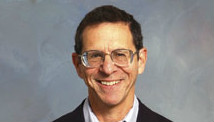Norman Matloff, a professor of computer science at the University of California, Davis contributed an exclusive op-ed to CNN on May 25, 2012, which speaks of the obvious decline of job employment in the face of advancing technological innovation and invention embodied in the non-human factor of production (productive land, structures, machines, superautomation, robotics, digital computerized operations, etc.).
“Are technology companies ailing?
“Hewlett-Packard certainly is. The venerable behemoth announced it will implement a restructuring that includes eliminating 27,000 jobs. HP tried to bring itself around by replacing its CEO last year. That didn’t quite do the trick, so now it’s resorting to the good old-fashioned mass layoff.
“One suspects that HP is a little too venerable. It was the first “Stanford spinoff,” fittingly reflected in the presence of Hewlett Hall and Packard Hall in the engineering corner of the Stanford campus. Yet HP hasn’t stayed ahead of the innovation curve, failing for instance to adapt well to the tablet craze.

“This could be the end of an era.
“Consider two Stanford neighbors of Hewlett and Packard Halls — Gates Hall and the Huang Center. Bill Gates’ company may be losing the innovation war, too. It’s getting pummeled by the tablets as well, and just this week Google’s Chrome Web browser overtook Microsoft’s Internet Explorer in popularity. By contrast, the Huang Center was funded by Jen-Hsun Huang, whose firm NVIDIA has been revolutionizing the supercomputer field.
“But won’t those laid-off HP engineers be snapped up by the booming tech sector? Many will not.
“The tech job market is excellent for younger workers, but many of those who are laid off and over 35 will find the market less welcoming. They’re perceived as too expensive. The HP layoff will consist disproportionately of older workers. Indeed, jettisoning the veterans is often the hidden agenda in mass layoffs. It’s no coincidence that many of the U.S. core engineering openings at HP have titles like Recent Graduate, Intern and Post Doc, all aimed at the younger crowd.”
While conventional economists still believe full employment will solve our income distribution problems, what’s going on in the scientific world or the business world or the industrial world indicates that this is not the panacea. HP is a technology company whose products are produced largely with the non-human factor of production––productive capital (machines, superautomation, robotics, digital computerized operations, etc.) We HP and other companies, capital workers (productive capital owners) are continually replacing labor workers (non-capital owners) as the principal suppliers of products and services When this happens, labor employment alone becomes inadequate.
Our scientists, engineers, and executive managers who are not owners themselves, except for those in the highest employed positions, are encouraged to work to destroy employment by making the capital worker more productive. How much employment can be destroyed by substituting machines for people is a measure of their success––always focused on producing at the lowest cost. Only the people who already own productive capital are the beneficiaries of their work, as they systematically concentrate more and more capital ownership in their stationary 1 percent ranks. Yet the 1 percent are not the people who do the overwhelming consuming. The result is the consumer populous is not able to get the money to buy the products and services produced as a result of substituting machines for people. And yet you can’t have mass production without mass human consumption. It is the exponential disassociation of production and consumption that is the problem in the United States economy, and the reason that ordinary citizens must gain access to productive capital ownership to improve their economic well-being.
The role of physical productive capital is to do ever more of the work, which produces income. Full employment is not an objective of businesses. Companies strive to keep labor input and other costs at a minimum. Private sector job creation in numbers that match the pool of people willing and able to work is constantly being eroded by physical productive capital’s ever increasing role.
There are realizable remedies entailed in policies and programs that broaden ownership of productive capital among corporate employees and all ordinary Americans. An overview of various solutions can be found at http://
http://www.cnn.com/2012/05/25/opinion/matloff-hp-layoffs/?hpt=hp_t2


